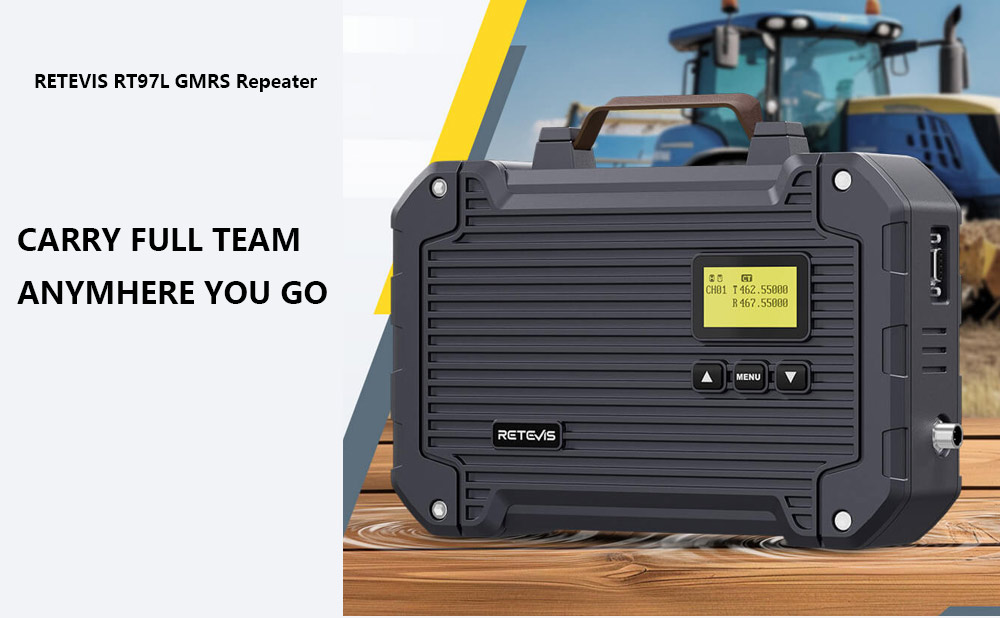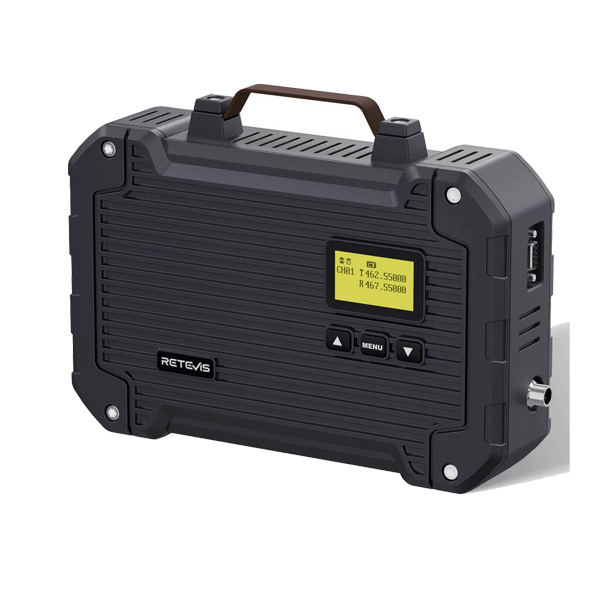What Are GMRS Repeaters and How Do They Enhance Communication?

What Are GMRS Repeaters and How Do They Enhance Communication?
Introduction to GMRS Communication Systems
GMRS repeaters (General Mobile Radio Service relay stations) have become essential components for reliable two-way radio communications. These specialized devices serve as signal boosters that dramatically extend the range of GMRS radio systems, transforming limited line-of-sight transmissions into powerful wide-area networks.
For outdoor enthusiasts, emergency responders, and business users, understanding GMRS repeater technology unlocks new possibilities for wireless communication. This guide explores how these critical communication nodes operate and why they're revolutionizing personal radio services.
How GMRS Repeater Stations Work
The Signal Amplification Process
GMRS relay devices function by receiving transmissions on one frequency and simultaneously retransmitting them on another. This dual-frequency operation (known as duplex mode) allows these communication hubs to:
1.Capture weak signals from portable GMRS transceivers
2.Clean and amplify the received audio
3.Broadcast the strengthened signal across wider areas
Unlike simplex communication (direct radio-to-radio), GMRS radio repeater systems use carefully paired input and output frequencies, typically with a 5MHz offset between receive and transmit channels.
Strategic Infrastructure Placement
Professional GMRS mobile repeater installations prioritize elevated locations such as:
1.Communication towers
2.Mountain peaks
3.Tall buildings
4.Water towers
Key Benefits of GMRS Repeater Networks
Expanded Communication Range
While standard GMRS walkie-talkies typically achieve 1-5 miles range, linking through a repeater tower extends coverage to 20-50+ miles depending on:
1.Repeater antenna height
2.Transmitter power
3.Terrain characteristics
4.Atmospheric conditions
Enhanced Signal Quality
GMRS signal repeaters provide:
1.Clearer audio by boosting weak transmissions
2.Reduced static and interference
3.More reliable connections in marginal areas
4.Consistent coverage throughout the service area
Versatile Applications
GMRS communication repeaters support numerous use cases:
1.Emergency preparedness: Critical when cellular networks fail
2.Off-road adventures: Keeps vehicle convoys connected
3.Rural communications: Bridges gaps in remote areas
4.Business operations: Coordinates teams across large facilities
5.Neighborhood networks: Community alert systems







